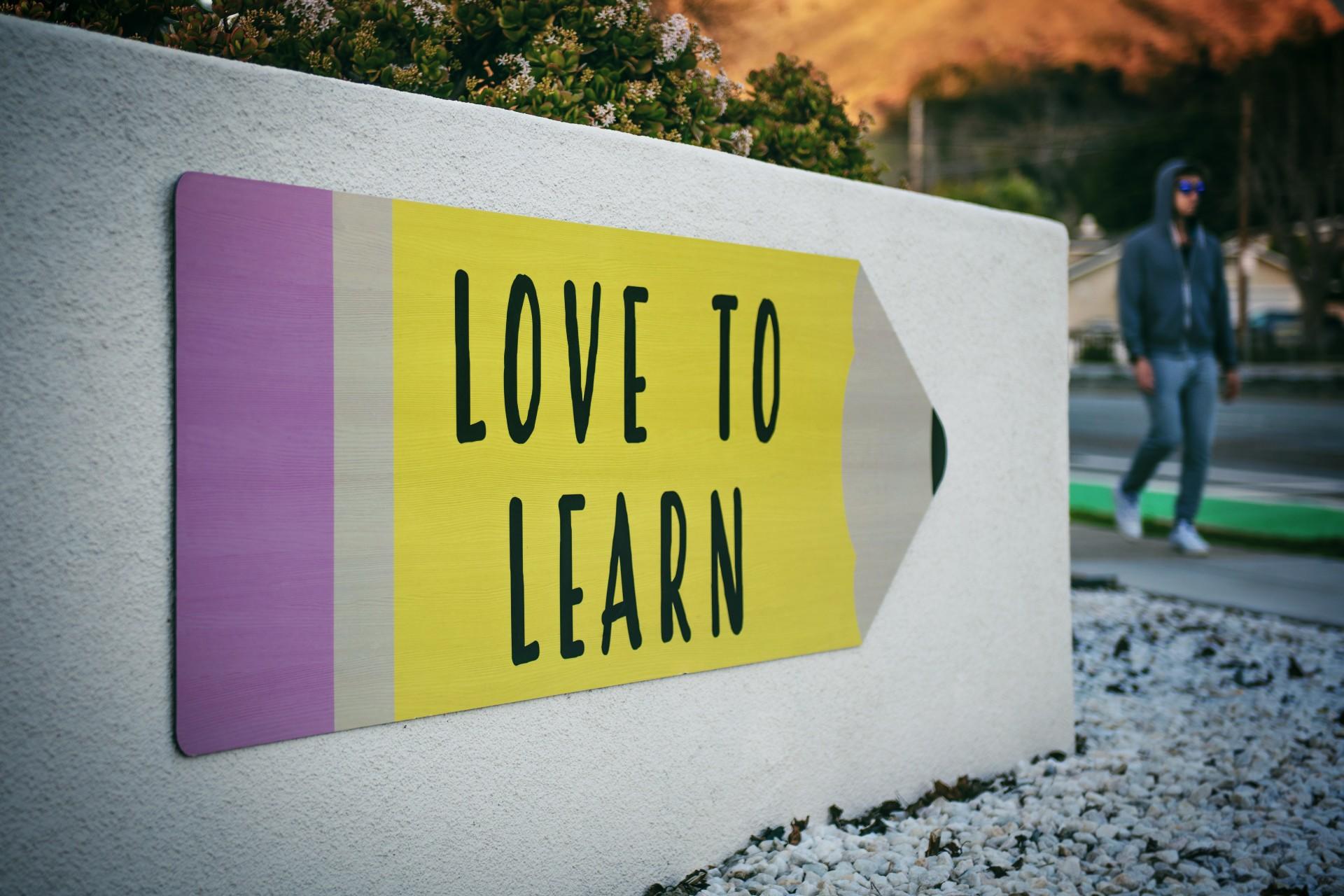No matter what country you live in, understanding its history and traditions is essential to feeling connected with the place and behaving consciously as a citizen.
A lot of social processes happening in societies now have their roots in the past, so by learning more about the development of your country through history, you can finally make better sense of its present.
A very important role in the history and culture of New Zealand is played by the Maori people. They arrived on the island well before European settlers and their cultural and linguistic traditions are present in our daily life, through names, expressions and customs.
Yet, even though a lot of people in New Zealand are aware of the Maori heritage, many of them don't know enough about it despite the government's initiatives.
To some of them, Maori-related topics don't seem interesting enough, while others simply haven't had an opportunity to learn more about them.
In both cases, learning a few facts about Maori people can be an excellent idea since it's a fascinating subject once you start exploring it and it will make you much more knowledgeable.
But what's the best way to learn more about Maori people in New Zealand? I think that one of the crucial elements is the Maori language or te reo. Let's find out more about it.
Find out why Maori heritage is important on Superprof.

The Importance of te reo within Maori Culture
Even though te reo Maori has official status in New Zealand, the language used by most New Zealanders in everyday communication is English.
English also happens to be a very important international language spoken by millions of people all over the world every day and it gives access to a vast choice of literature and other sources and information.
So, a logical question that students may raise is whether it wouldn't be easier to simply read about Maori history and traditions in English without learning the te reo Maori? In reality, things are not that simple.
Even though people can, of course, get information about any topic in any language they want, languages still play a considerable cultural role. So if you are interested in learning about one cultural universe in particular, you will get a much deeper insight into it by learning the language in which it originally developed.

An example of how learning to speak Maori can help you better grasp different aspects of Maori heritage is names. Maori place and proper names aren't usually just conventional references but they also have a meaning.
Among others, Aotearoa, the Maori name of New Zealand, is made up of the words ao ("cloud"), tea ("white") and roa ("long"). And Te Waipounamu possibly means "the water(s) of greenstone".
By learning the te reo Maori, students can not just learn important names and words by heart but appreciate their poetry and beauty. That makes learning about New Zealand, its traditions and its people much more meaningful and you will remember important facts much more easily.
And in our article, there is more information about Maori history.
So, even if your main goal is to learn more about New Zealand, te reo lessons can be worth your time and money. In addition to that, te reo Maori is a language spoken by thousands of people in New Zealand and which you can use for communication. Here is more about it.
How Many People Learn to Speak te reo
Taking lessons in a language you are really interested in can be a great experience. When we are motivated, we pick up new words much more easily and can reach a good level of skills in less time.
Nevertheless, if you want to be really fluent in te reo alongside English, then you probably cannot do without language practice and the best way to practise languages is to speak with native speakers, who use them in daily life.
So, how easy is it to meet language partners in te reo Maori in New Zealand?
Nowadays, about 50 000 people in the country can speak te reo Maori fluently. Basically, you can meet Maori friends in almost any town and use your Maori words and sentences with them.
Additionally, over 186 000 people in New Zealand have some knowledge of te reo, such as school-level skills, which means that they can have basic conversations in the language during the day.
Some of those speakers may be willing to have more language practice with other learners and that can be your chance to use te reo more often and constantly improve your speaking skills.
Since te reo Maori has official status in New Zealand, there is a good choice of free courses you can take at a language school or in other places in your free time to improve your grammar and learn new words.
It can also be useful to take part in cultural activities organised by the Maori community, like Maori festivals. That can be a great opportunity to meet other learners as well as native speakers of te reo in an informal context and have a relaxed exchange with them.
You can learn a few Maori expressions in our article.

What is te reo Maori Like?
If you have never taken Maori courses at school or university, words and texts in te reo may seem daunting at first. That is completely normal because te reo is a Polynesian language that has very little in common with English.
Its vocabulary is mostly made up of native roots, it has its own grammar rules and its logic may sometimes be unusual for an English speaker.
Yet, that also makes Maori courses more interesting. Whether you learn it at school, university or in your free time, you will discover lots of new things, which can be very rewarding.
As you learn te reo, its compound words and names will start making more sense for you and day by day, previously confusing expressions will become completely natural for you.
Furthermore, a good level of Maori skills allows students to get the real meaning of traditions and customs related to te reo.
For example, the most common greeting used in Maori is kia ora. A lot of New Zealanders know this phrase and even use it in their everyday interactions. However, only a few of them are aware of what it really means.
After you take Maori lessons as part of your education or in a government-supported school, you'll discover that in fact, kia ora can be translated as "be healthy" or "have life".
It is a phrase through which you can express your empathy towards the person you are greeting and build a closer connection with them.
Studying languages is also about getting used to communicating in totally new ways and with different means. A great place to practise the language is Maori festivals.

Things to Focus on When You Learn te reo
All languages have their easy and difficult sides, which may vary from one student to another depending on their mother tongue. Since most New Zealanders willing to master te reo are native English speakers, I am going to focus on the challenges they'll have to face.
The first of the most basic aspect of a language every student has to master is its pronunciation. It is extremely important because it's a skill the person is going to use throughout the entire education process and when they practise the tongue afterwards.
English speakers don't have to worry much about this point since Maori pronunciation is really not very complicated. Most Maori sounds also exist in English, so all you need is to get used to uttering them in a slightly different order.
That said, you shouldn't take it lightly either because if you don't make effort at the beginning, you might develop bad habits.

Another challenging aspect of te reo is its vocabulary. It is mostly composed of Polynesian roots, which you'll have to remember. You shouldn't be too daunted by this point either though as numerous vocabulary units in Maori are short and fairly easy to memorise. A good example is the phrase kia ora made up of just two three-letter units.
Finally, to speak correctly, Maori learners need to master grammar. That is probably the most challenging aspect of te reo, given that it is quite different from English and may even seem illogical at times.
The good news, however, is that there are not that many exceptions in Maori, as is the case in numerous other languages you might have studied, like French, Spanish, German and many others.
So, to master Maori grammar, you just need to understand how rules work and you can start making sentences with the vocabulary you've picked up.
Resources for Learning te reo Maori
Anyone interested in learning te reo Maori needs to look for suitable approaches and resources.
It's important to remember that every learner is unique, and what works for one person may not work for another. This diversity of learning approaches for te reo Maori ensures that there's a method that suits your individual learning style.
Here, we've outlined the most common and practical approaches for learning te reo. These methods are not only popular but also feasible for most learners.
How to Learn Maori Online
The internet, with its abundance of language learning resources, has played a crucial role in the revival of te reo Maori. It's a treasure trove for anyone looking to learn the language.
Thanks to online courses, resources like dictionaries and grammar guides, and even online groups, you can learn te reo Maori wherever you are.
Online te reo Courses
Te Wānanga o Aotearoa has several free te reo courses. These courses mainly cover the beginner and intermediate levels of the language. Still, they are flexible and accessible, making them an excellent choice for busy people trying to learn te reo.
New Zealand's universities, such as Massey University and Victoria University of Wellington, offer a variety of learning options, both online and in-person, to cater to your specific needs and preferences.
Apps for Learning te reo
If you have a smartphone or tablet, you can practise and learn te reo Maori with some popular language learning apps and some developed explicitly for teaching Maori.
- Drops is a language learning app that gamifies the process of learning a language. It can be useful mainly for learning vocabulary.
- Duolingo is another popular language-learning app that features te reo Maori. It's useful for learning vocabulary and the basic structure of the language. Still, it does have its limitations when it comes to actually speaking the language.
- Kōrero Māori is an app specifically designed to teach Maori phrases and vocabulary.
All of these apps are available on iOS and Android.
Online te reo Dictionaries and Resources
While you can't learn te reo simply by reading a dictionary, it's important to have one, whether it's a printed dictionary, an online dictionary, or a dictionary app.
The Te Aka Māori Dictionary is comprehensive, and you can also hear the audio pronunciations of the vocabulary.
Kupu is a mobile dictionary app that uses image recognition to identify objects and give them their Maori names. This is particularly useful as you'll learn the words for what they are rather than a translation from another language.
YouTube Channels for Learning te reo
There are plenty of te reo YouTube channels, and once you reach a certain level in the language, you must expose yourself as much as possible to Maori-language content.
The Te Karere TVNZ news programme is helpful for practising listening. At the same time, the Kura Reo channel features videos to help you practise conversational Maori.
Learn te reo with Social Media and Online Communities
You can use Facebook Groups, Reddit, and other social media platforms to connect with Maori speakers or your fellow te reo learners.
There are “Learn Maori Language” and “Te Reo Maori” Facebook groups or the r/te_reo subreddit.

How to Teach Yourself Maori
While teaching yourself a language isn't impossible, it can be far more complex than learning it as part of a course, with a teacher, or with a private tutor.
Regular practice and self-assessment are key to mastering te reo Maori, keeping you motivated and committed to your learning process.
Motivation is also vital for teaching yourself te reo. Learning languages takes hundreds of hours of study and practice to speak at a fairly basic level, so don't get disheartened if you can't really have engaging conversations after a few sessions.
Instead, celebrate the smaller victories, new vocabulary, and any opportunity to use your new language.
How to Learn Maori in a Class
You can learn te reo in a class. For students who prefer structured learning, this could be a good option. There are many te reo classes across New Zealand (as well as online courses).
Typically, te reo classes are cheap or free and offered through community centres, libraries, and Adult Community Education (ACE) programmes.
There's also Maori Language Week, which takes place every September and involves schools, businesses, and government agencies across New Zealand offering free classes and workshops to promote the use of te reo Maori.
How to Learn Maori with a Tutor
One of the best ways to learn a language is with a private tutor. While many excellent te reo programmes and courses are out there, many have the same problem of having many students and just one teacher.
This is how we're taught most things, and this approach ignores the fact that every student needs to learn differently.
With private te reo tutoring, a tutor can plan each lesson and activity for the student. They can focus on what the student wants to learn and the best ways to go about it.
They can also tailor the lessons to make them more engaging for the students, choosing topics that they're interested in. This is particularly useful if you're trying to start a conversation, especially in somebody's second language.
If you're looking to learn te reo with a private tutor, search for "te reo" or "Maori" on the Superprof website, and you can start browsing the profiles of potential tutors.
You can see what they teach, how much they charge, and what their other students think of them. There are face-to-face tutors across New Zealand, online tutors worldwide, and tutors offering discounted rates for group sessions.
Each type of tutoring has its pros and cons. While face-to-face tutoring is usually the most effective and cost-effective, online tutoring tends to be cheaper per hour. Group tutoring is by far the cheapest per hour, but this does have some of the same downsides as learning te reo in a class.
Many tutors on the website offer the first session for free, so why not try a few different tutors before choosing the te reo tutor that's right for you.
Summarise with AI:















